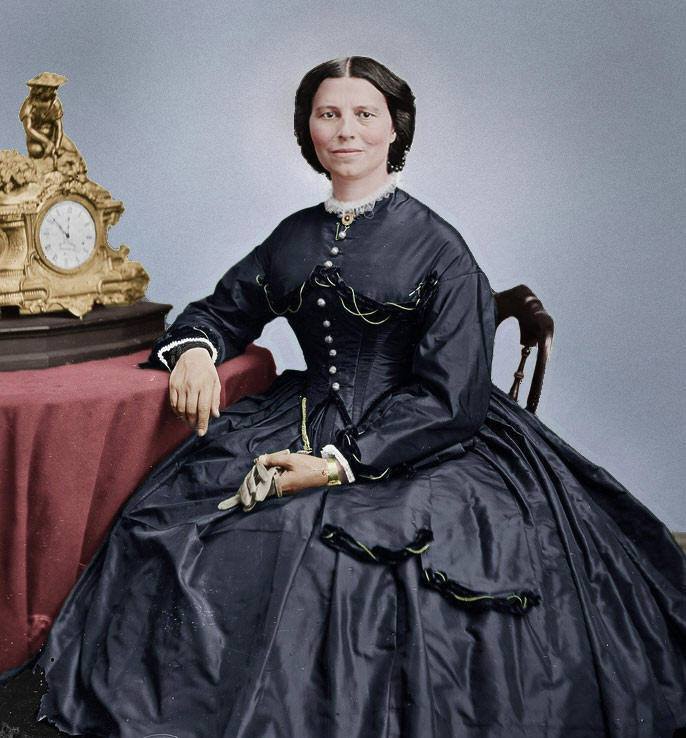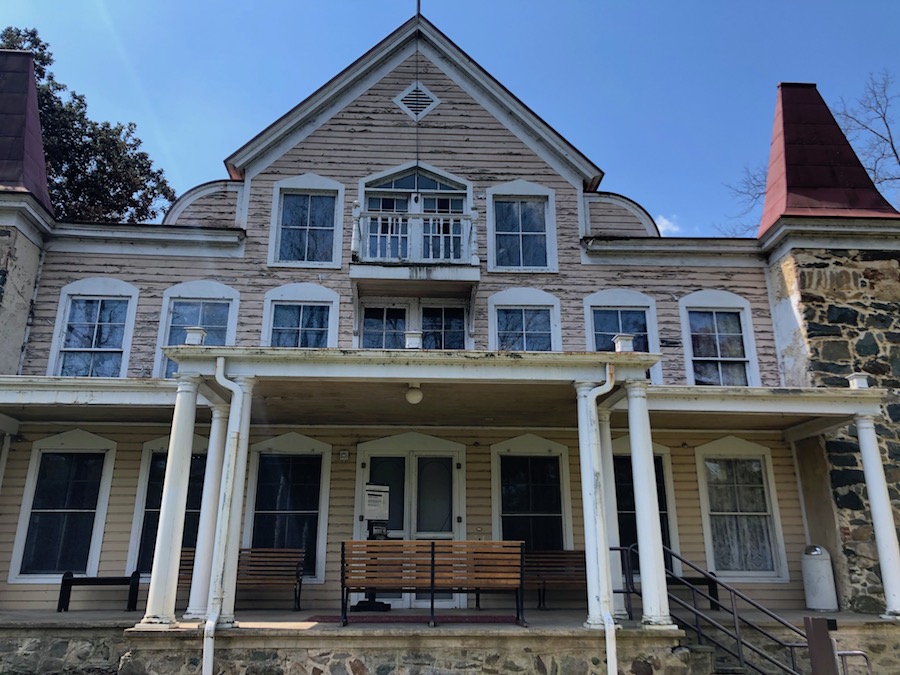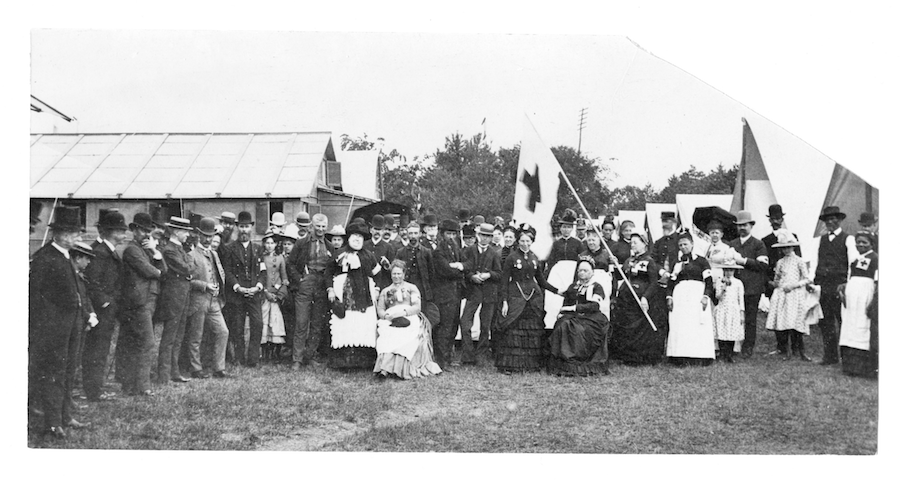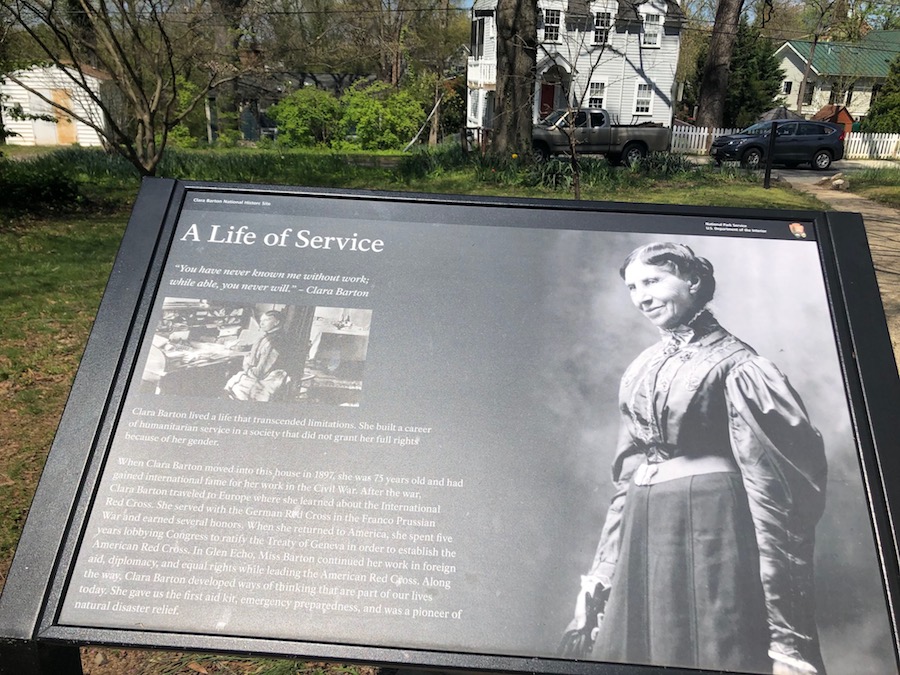Clara Barton, A Woman For Our Times

A chance discovery on a Coronavirus walk through Glen Echo led me to the home of a most remarkable woman. After her community had collapsed due to rumors of malaria in the area, the surrounding property was converted into an amusement park. One of the park’s managers wanted to turn her home into a hotel and tried to persuade her to leave. When she wouldn’t, he tried other ways to make her leave including installing a roller coaster and a ferris wheel in her front yard!

Not intimidated by the “Coney Island” atmosphere, she continued living there, leading a self-sufficient life tending to her fruit trees until her death in 1912. For a time, the house even served as a working headquarters for her relief operations and an unofficial shelter for troubled souls, including alcoholics, “former prostitutes, chronic debtors, and other misfits.”
A lifelong educator and humanitarian, as a young woman, she quit her teaching job after a man had been hired at twice her salary. That job was establishing the first free school in New Jersey. She helped distribute needed supplies to the Union Army during the Civil War. She started the American Red Cross, and established the National First Aid Association of America, an organization dedicated to emergency preparedness. She developed the first first aid kits. She was also an ardent supporter of women's suffrage, helping Susan B. Anthony and once hosting a party for the cause, and lectured the soldiers that she nursed about the need for women's rights.
Her Glen Echo, Maryland home, also the early headquarters of the American Red Cross, became a National Historic Site in 1975, the first dedicated to the achievements of a woman.
Clarissa “Clara” Harlowe Barton was born in 1821 on Christmas Day in Oxford, Massachusetts, the youngest of Stephen and Sarah Barton’s five children. Her father was a prosperous farmer. Her first experience as a nurse was helping care for her seriously ill brother David as a teenager. She began teaching at age 18, founded a school for workers’ children at her brother’s mill when she was 24.
In 1854 she was the first woman hired as a recording clerk at the US Patent Office in Washington, D.C. She was paid $1,400 annually, the same as her male colleagues. The following year, Secretary of the Interior Robert McClelland, who opposed women working in government, reduced her to copyist with a lower salary. In 1857, the Buchanan Administration eliminated her position entirely, but in 1860, she returned as copyist after the election of President Abraham Lincoln.

Known as the "Angel of the Battlefield" during the Civil War, in 1862 she received official permission to transport supplies to battlefields and was at every major battle in Maryland, Virginia, and South Carolina, where she also tended to the wounded. She reportedly had a beau, a married Union officer, Lieutenant Colonel John J. Elwell, turned down more than one offer of marriage, and chose to remain single and dedicate her life to helping others.
She was officially named head nurse for one of General Benjamin Butler’s units in 1864, even though she had no formal medical training. She joined Frances Gage in helping to prepare slaves for their lives in freedom. After the war, Barton helped locate missing soldiers, mark thousands of graves, and testified in Congress about her wartime experiences.

While in Switzerland in 1869, she learned about the International Red Cross, established in Geneva five years prior. Returning to the U.S., Barton built support for the creation of an American society of the Red Cross by writing pamphlets, lecturing, and meeting with President Rutherford B. Hayes. On May 21, 1881, the American Assocation of the Red Cross was formed; Barton was elected president in June. In 1882, the U.S. joined the International Red Cross.
Barton remained with the Red Cross until 1904, attending national and international meetings, aiding with disasters, helping the homeless and poor, and writing about her life and the Red Cross.
*/
